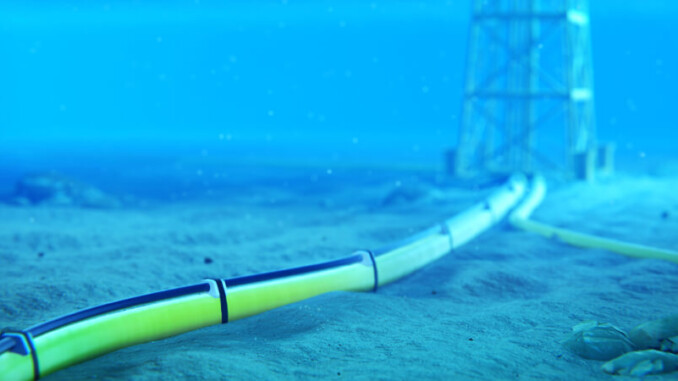Undersea cables are the backbone of global communication, carrying over 99% of international data traffic. In the West African region, these cables are critical for both communication and economic development. Nigeria, as the largest economy in Africa, recognizes the strategic importance of safeguarding these cables to ensure uninterrupted connectivity. In recent years, Nigeria has been actively seeking partnerships with other West African nations to jointly protect undersea cables, realising the mutual benefits of such collaboration.
Read also: Internet outage plagues parts of Africa as undersea cables falter
The threats and the risks
The undersea cables that traverse West African waters face various threats and risks. These include accidental damage from fishing activities, anchor drag from ships, and natural phenomena such as earthquakes and underwater landslides. Additionally, deliberate sabotage, theft, and vandalism pose significant risks to the integrity of these cables. Disruptions to undersea cable connectivity can have severe consequences, ranging from economic losses to compromised national security.
Recognizing the vulnerability of undersea cables and the need for collective action, Nigeria has taken proactive steps to initiate joint protection efforts across West Africa. The country has engaged in diplomatic discussions with neighbouring nations, regional organizations, and international stakeholders to foster cooperation in safeguarding undersea cable infrastructure. By forging partnerships based on shared interests and common goals, Nigeria aims to enhance the resilience and security of critical communication networks in the region.
Nigeria advocates for the establishment of a collaborative framework that outlines roles, responsibilities, and mechanisms for coordinating efforts to protect undersea cables. This framework would involve multiple stakeholders, including governments, telecommunications companies, maritime authorities, and security agencies. By formalizing cooperation through agreements and protocols, Nigeria seeks to create a cohesive and coordinated approach to address the multifaceted challenges of undersea cable protection.
Central to Nigeria’s initiative is the emphasis on capacity building and information sharing among West African nations. Nigeria recognizes the importance of equipping relevant stakeholders with the necessary skills, knowledge, and resources to effectively monitor, maintain, and respond to threats against undersea cables. Nigeria aims to strengthen regional undersea cable protection and emergency response capabilities through training programs, workshops, and joint exercises.
In addition to capacity building, Nigeria advocates for the deployment of advanced technology and innovation to enhance the security of undersea cable infrastructure. This includes the use of remote sensing, surveillance systems, and predictive analytics to detect and deter potential threats in real time. By leveraging cutting-edge solutions, Nigeria seeks to stay ahead of emerging risks and vulnerabilities, ensuring the uninterrupted flow of data across West Africa’s undersea cable networks.
Read also: Meta misses November target to land subsea cable in Nigeria
Protection for undersea cables
Protecting undersea cables is not only a matter of national interest but also a shared responsibility that requires collective action and cooperation among West African nations. Nigeria’s initiative to seek joint protection of undersea cables underscores the importance of collaboration in addressing common challenges and safeguarding critical infrastructure. By working together within a collaborative framework, leveraging technology, and enhancing capacity-building efforts, Nigeria and its regional partners can effectively mitigate risks and ensure the resilience of undersea cable networks for the benefit of all.




